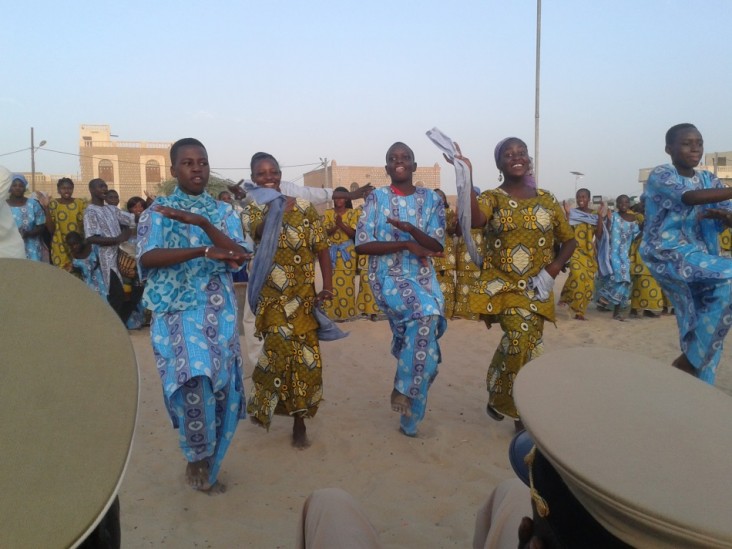
March 2014—The occupation of Timbuktu in 2012 was a traumatic experience for the entire community, but particularly the youth, who were targeted by armed extremist groups who imposed brutal interpretation of Sharia law. For over a year, young people became prisoners in their own city or were forced to seek refuge in other areas of Mali and neighboring countries.
Extremists banned social and cultural activities and sanctioned, often violently, anyone caught listening to music. A year after the liberation of Timbuktu in early 2013, the scars and trauma of the occupation remained.
To restore a sense of normalcy to the community, as well as encourage a resurgence of art and culture in Timbuktu, USAID, through its Office of Transition Initiatives, has been working with local authorities, traditional leaders and youth since October 2013. In collaboration with the youth council of Timbuktu, USAID organized a four-day inter-neighborhood theater competition. The competition brought critical sectors of the community and ethnic groups together to develop original plays, songs and dances with the themes of peace, reconciliation and cultural resistance against violent extremism.
Thousands of community members—men, women, girls and boys of all ages from all ethnic groups and social classes—attended each evening of the four-night event, signaling the population’s growing confidence in the transition and improved security.
Said one elderly man who attended the event, "With the exception of the nights of Maouloud, the birthday of the Prophet Mohammed, I've never seen a public show comparable to this in Timbuktu.”
"I did not think we would ever be able to be in the same place with girls in Timbuktu," said a young boy as he danced.
The activity allowed residents from across Timbuktu’s eight neighborhoods to meet, interact and celebrate the return to peace and cultural diversity as they watched touching performances portraying the pain and struggle involved in achieving reconciliation.
Referencing the liberation of Timbuktu from extremist occupation, Mohamed Sidy Arby exclaimed, "We are sure the city is ours now!"







Comment
Make a general inquiry or suggest an improvement.